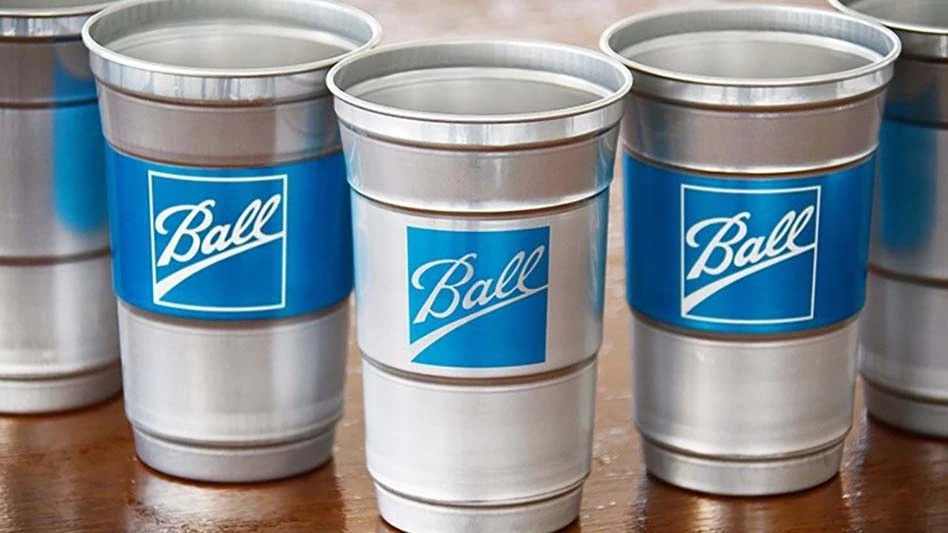
Photo courtesy of Ball Corp.
Westminster, Colorado-based Ball Corp. has released its Climate Transition Plan, which outlines the company’s pathway and evolution into a fully circular and decarbonized business.
According to a news release from Ball, its Climate Transition Plan offers a transparent, robust and science-based decarbonization plan inspired by the latest U.N. guidelines and its call for corporations to ground net zero commitments in real emissions cuts.
With a focus on critical emissions reductions by 2030 and additional milestones by 2050 or earlier, the company says the plan includes three technically feasible and economically viable scenarios that account for a degree of uncertainty and the potential for change along the journey.
Ball has updated and expanded its 2030 climate goals. It plans to reach a 55 percent reduction in absolute greenhouse gas emissions by 2030, which covers all three scopes of emissions. The plan also includes increasing its recycling rate to 90 percent across all regions in that same timeframe.

“Ball’s Climate Transition Plan will help our customers achieve their Scope 3 emissions targets,” says Ramon Arratia, chief sustainability officer of Ball. “Strong collaboration with our customers and suppliers across the value chain will be needed as well as joint policy advocacy for high circularity.”
It also details how Ball is aligning its commitments with action, including its efforts to mobilize the industry’s value chain as a founding member of the World Economic Forum’s First Movers Coalition and advocating for policies that will accelerate decarbonization.
At a macro level, the company says its first scenario foresees continued and rising public support for climate change action and an accelerated transition to a circular, low-carbon economy. At the middle level, it foresees beverage brands increasing their commitments to reusable and/or highly recycled-content packaging and governments facilitating a rise in collection, recycling and remelting capacities. The company says it anticipates these trends will rapidly lead to a low-carbon primary aluminum sector.
The company also released its 2022 Combined Report, which details its commitment to environmental, social and economic sustainability. It also details its progress toward its 2030 product stewardship and social impact goals.
The report shows 66 percent of Ball’s packaging is made from recycled content based on the average of the three regions it operates in, up 3 percent from last year. Broken down, products in North America and Central America are made with 64 percent recycled content. In the European, Middle East and African region, its products are made of 62 percent recycled content. In South America, 76 percent of its products are made with recycled content.
Additionally, Ball generated 87 percent of its revenue from the sale of products that are manufactured with recycled materials. More than 108 billion aluminum beverage cans were shipped worldwide in 2022.
“The details shared in our 2022 combined report and Climate Transition Plan demonstrate our commitment to driving innovation and operational excellence across our global aluminum packaging and aerospace businesses,” Dan Fisher, president and CEO of Ball. “With sustainability as our continued focus, we have a bright future ahead.”
Latest from Recycling Today
- BMW Group, Encory launch 'direct recycling’ of batteries
- Loom Carbon, RTI International partner to scale textile recycling technology
- Goodwill Industries of West Michigan, American Glass Mosaics partner to divert glass from landfill
- CARI forms federal advocacy partnership
- Monthly packaging papers shipments down in November
- STEEL Act aims to enhance trade enforcement to prevent dumping of steel in the US
- San Francisco schools introduce compostable lunch trays
- Aduro graduates from Shell GameChanger program





